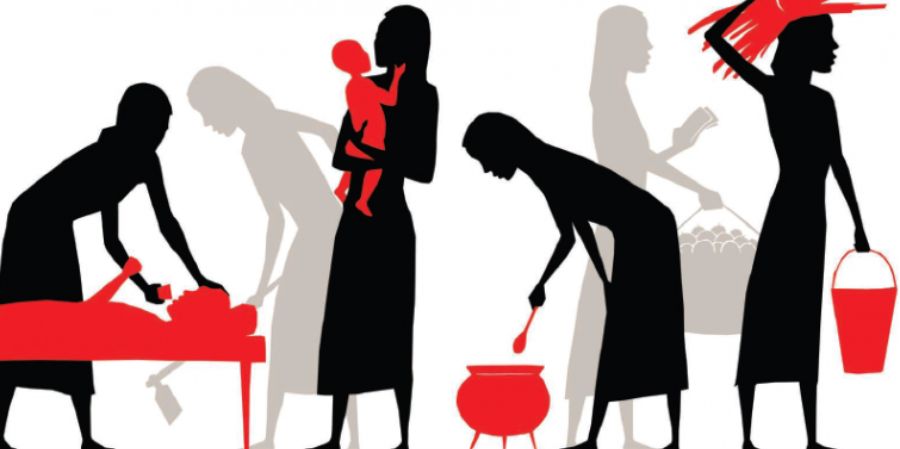

Women do a lot of work at home. Although they are considered the hosts of their families. Their work is not recognized and it is also unpaid. A 2019 study by VIGNESH RADHAKRISHNAN, NARESH SINGARAVELu found that more than 90% of Indian women did unpaid housework at home in 2019, compared to 27% of men. On the other hand, only 22 percent of women participated in work and related activities, while 71 percent of men participated. Although regional differences were small, more than 84 percent of women participated in unpaid domestic work in all states, regardless of men's participation in such work and women's participation in work and related activities. The information is based on a survey conducted by Statistics Finland in January-December 2019.
After all, women are told that they don't work at home, they just sit. Unpaid domestic work is an important part of productive activity and a necessary factor in promoting the well-being of the household and the economy. However, the majority of women doing housework and keeping them outside the "economic activity" put unpaid housework in the shadow of the invisible, outside the limits of production and even further from economic policy. The nature of women's work has undergone significant changes under the neoliberal paradigm of the Indian economy, with women's participation in the labor force and workforce significantly reduced.
To understand the position of women in the labor market, it is necessary to understand the nature of their unpaid work, which significantly affects their work in the economy. Therefore, this study aims to examine the extent and determinants of unpaid domestic work among women in India. The results of this study show that among women who are less educated and belong to the lower wealth quintile of society, the intensity of participation in household chores is high. Women perform unpaid domestic work due to three factors: constraints (social and religious), choices (failure of markets and countries to provide essential services), and careers (low market opportunity costs of unpaid work). Therefore, to change the status of women in the economy, a holistic approach must be considered in the wider context of the household, state, market and society through macro, meso and micro linkages.
The Sustainable Development Goals (SDGs) recognize the importance of unpaid care and domestic work through public services, infrastructure and social security policies and shared household responsibilities (target 5.4). When there work is recognized only it will make a way for a prosperous women.


